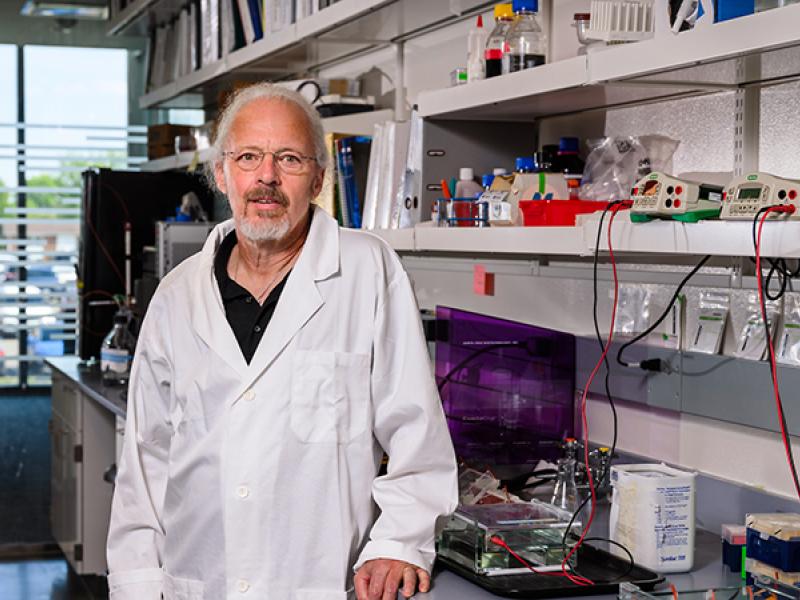The University of Missouri School of Medicine, organized as a two-year school in 1872, was the first publicly supported medical school west of the Mississippi River. The school survived the scathing “1910 Flexner Report on Medical Education in the United States and Canada,” which led to the closure of the vast majority of the proprietary “medical school enterprises” of the time.
Although the School of Medicine had, at times, experimented with a four-year curriculum, the current four-year program was not permanently established until 1955 when Frank B. Engley, Jr., PhD, became the first formal professor and chairman of the Department of Microbiology. Engley’s scholarly interests included antisepsis and disinfection, subjects for which he is internationally known. His term as chair ended in January 1976 with the appointment of David J. Hentges, PhD, as interim chair until June 1979. Hentges' research interests involved gnotobiotic animals, enteric microflora and anaerobes.
The late Richard A. Finkelstein, PhD, who is internationally recognized for his research on pathogenesis and immunology of cholera, served as chair until July 1993. During his tenure, the department underwent its major growth spurt with the addition of 10 research-oriented faculty, a name change to “Molecular Microbiology and Immunology,” and the formation of the campus-wide Molecular Biology program.
Charlotte D. Parker, PhD, whose research dealt with microbial genetics and pathogenesis of pertussis and cholera, served as Interim chair until the September 1994 appointment of the late Arnold L. Smith, MD. Smith, an expert on Haemophilus influenzae, retired in June 2002. The position was then filled by an internal candidate, Mark A. McIntosh, PhD, who is internationally recognized for his work on the molecular genetics of bacterial acquisition and transport of iron. McIntosh was then permanently made chair and served until July of 2017. The position was again filled by an internal candidate, Donald Burke-Aguero, PhD until Lee-Ann H. Allen, PhD was appointed in August of 2020. Dr. Allen served as chair until April 2025 where Haval Shirwan, PhD was then appointed as chair.
The first Doctor of Philosophy degree was conferred in 1927 on Esther Wagner Stearn, who studied under Mazyck P. Ravenel, MD, Professor of Medical Bacteriology and Preventive Medicine, 1914-1932, 1942-1946. The title of her dissertation was “Mutation of Characters of Bacteria as Defined by the Action of Gentian Violet in its Staining and Bacteriostatic Effect.” Ravenel's major contribution was his comparative studies on the virulence of bovine and human strains of Mycobacterium tuberculosis. His results argued against Robert Koch's opinion that bovine tubercle bacilli were of no consequence to human health and led to the pasteurization of milk.
Nearly 300 graduate degrees in microbiology have been granted since that first PhD in 1927. Before 1980, Master’s degrees led doctorates 106 to 39. Since 1980, the graduate degrees have been overwhelmingly PhDs.





